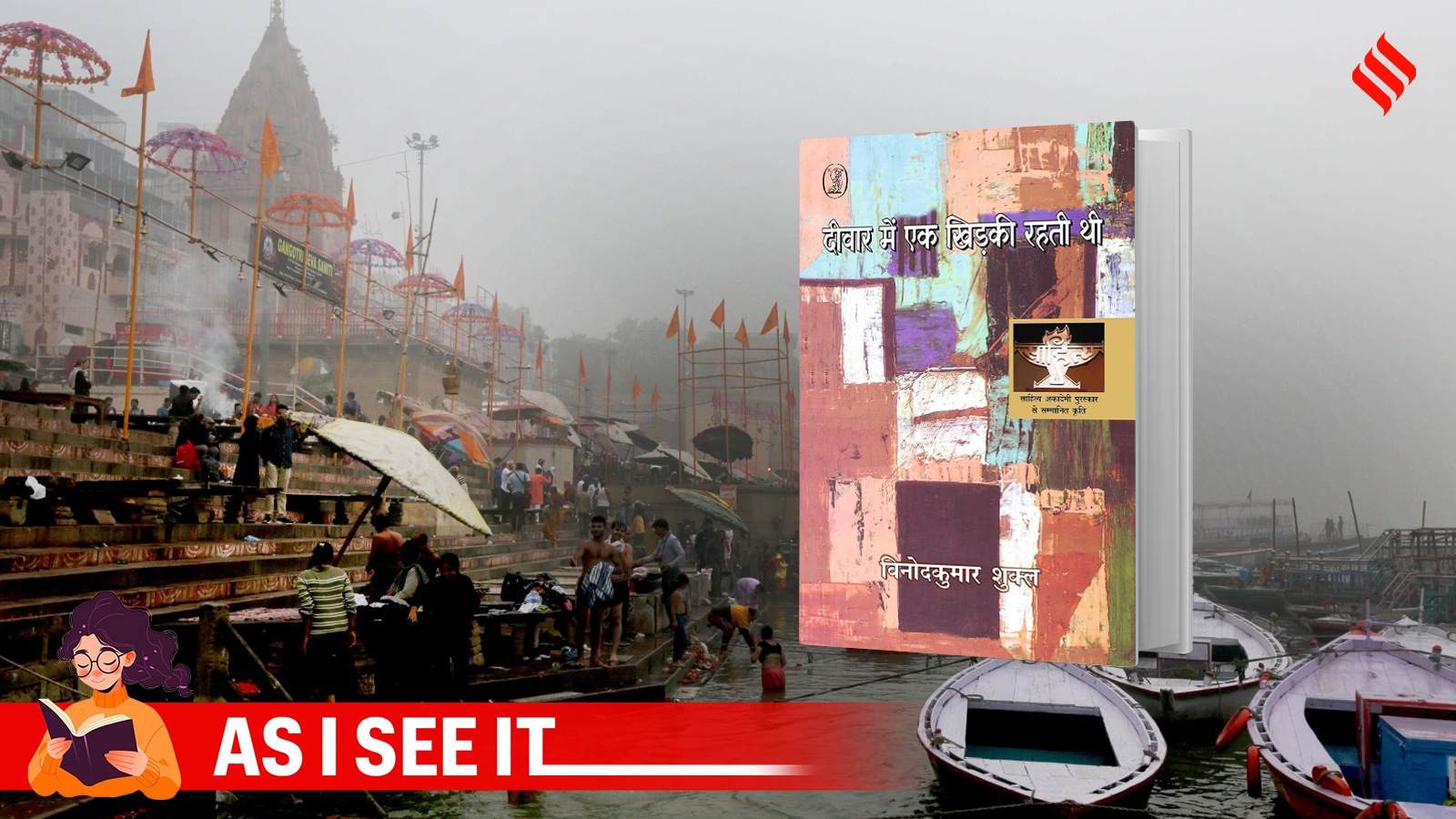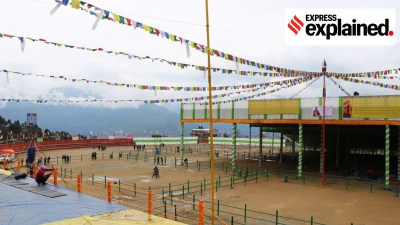Reading Vinod Kumar Shukla: For the quiet that stays after the last page
Vinod Kumar Shukla's words do not end when the book ends. They linger like fragrance in the mind's inner rooms
 Reading Deewar Mein Ek Khidki Rehti in Banaras of 2002 when the ghats wear a mild haze. (Express photo)
Reading Deewar Mein Ek Khidki Rehti in Banaras of 2002 when the ghats wear a mild haze. (Express photo)By Ashutosh Kumar Thakur
There are writers whose books you open. And there are writers whose books open you. Vinod Kumar Shukla belongs to the second kind. I first read him on an afternoon that felt like a held breath. A thin book, almost weightless, lay before me: Deewar Mein Ek Khidki Rehti Thi. A window that ‘lives’ in a wall.
Even the title resisted the syntax of stillness.
It was the pre-winter of 2002, the kind Banaras knows intimately, the light quieter, the ghats beginning to wear a mild haze. I was then a first-year B.A. student, travelling from Madhubani to Banaras, carrying inside me the restlessness and wonder that only a young reader possesses. On the way, I stopped in Patna, drawn instinctively, almost without intention, to the historic Rajkamal Prakashan shop on Ashok Rajpath. That was where the book found me.
Later, in the hostel room in Banaras Hindu University, its windows still smelling faintly of the river, I read the book in long, unhurried stretches. That evening extended into a night of conversation with my friend, then just a fellow reader, today the fiction writer Chandan Pandey. We spoke about the book the way one speaks of a strange, soft dream: afraid that naming it fully might break it. Why did this prose feel like it was listening back? Why did these sentences refuse to impose themselves and yet refuse to leave?
I remember turning those first pages and feeling a shift, not outside, not in the light of the room, but in some smaller chamber inside the chest. His sentences did not walk; they hovered. They came close, then paused, as though asking permission to sit beside you. Nothing extraordinary happened in those opening pages. And yet everything did.
Since that day, I have returned to him the way one returns to an old house, not for shelter, but for a silence one cannot find elsewhere. I write about him now not because an award has brought him to the centre of conversation, nor because literary calendars demand timely homage. I write because his voice has lived inside me like a window I did not know was there.
Writers often speak of presence. Vinod Kumar Shukla, instead, speaks of absence as a form of intimacy. His poem is not about who enters your home; it is about the quiet, invisible crowd that live in the threshold of memory, the people who shaped you without stepping inside your rooms.
Vinod Kumar Shukla writes this absence with such tenderness that the missing feel more present than the present. His poetry asks a simple question: Who lives inside you? Often, the answer is: Someone who was never physically there.
That is the kind of truth only a poet of deep quiet can reveal.
A door slightly ajar
To read him is to learn a new grammar of attention. He gives significance to the smallest gestures, the smallest objects: a lock, a leaf, a pair of worn-out shoes, a tin roof that remembers rain. He teaches you to look again. He teaches you to listen to what you skipped. He teaches you that the world is not made of events but of the little intervals between them.
Sometimes his sentences feel like a door left slightly ajar. You don’t know whether someone has just left or is about to enter. And you realise that the uncertainty is the meaning.
I think writers like him survive because they make us see what we have stopped seeing. They make visible the invisible threads that hold our lives together. Their pages are not mirrors; they are more like wells, you lean in not to see your face, but to hear your own echo returning as water.
Why I write about him now
Every few years, I return to his books the way one returns to a childhood lane, not to measure how far one has come, but to remember what first taught one to look. His work does not ask for applause. It asks for attention. It asks you to slow down. It asks you to keep a light on in a small, inner room.
I write about him now because I am still that young student walking from Madhubani to Banaras to Patna to a bookshop where a thin volume waited. I write because that book has continued to open me, year after year, without raising its voice even once.
The quiet that stays after the last page
What does a Vinod Kumar Shukla sentence do? It clears a small space inside you, the kind in which a silence can sit.
His words do not end when the book ends. They linger the way an old fragrance lingers in an abandoned shawl. They remain in the margins of your thoughts, whispering that the world is made of fragile, perishable, easily overlooked things: a window, a cloud, a childhood, a piece of chalk, a handful of love that does not know where to stay.
Sometimes literature does not give us answers. It gives us a room. Vinod Kumar Shukla has given me that room. And perhaps that is why, across two decades, across cities and shifts and distances, a part of me still stands in that small shop on Ashok Rajpath in Patna, holding a book that felt like a window.
(Ashutosh Kumar Thakur writes on society, literature, and the arts, reflecting on the shared histories and cultures of South Asia.)
- 01
- 02
- 03
- 04
- 05































